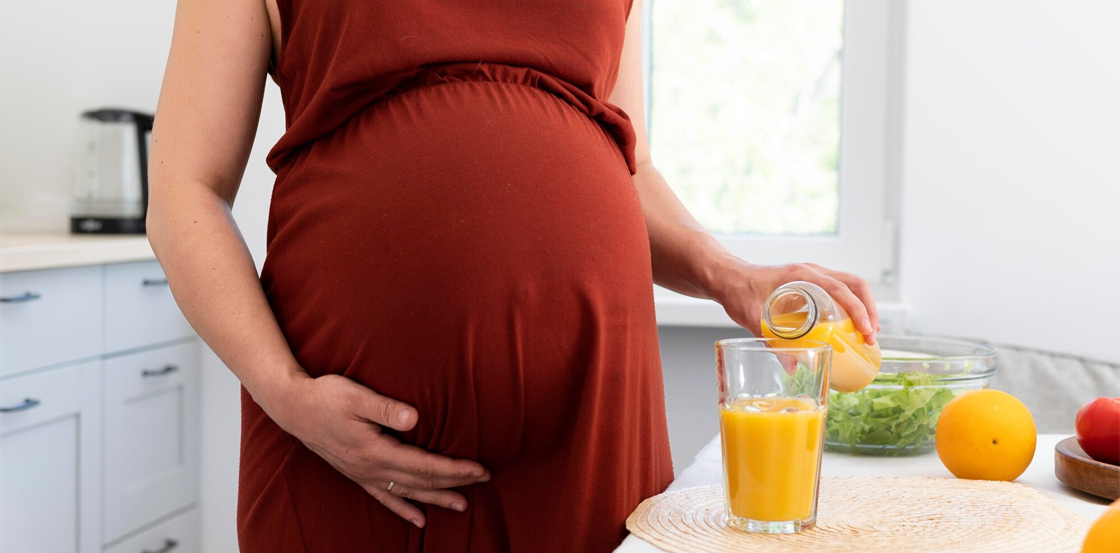Post link copied to clipboard!

If you are trying to conceive, you might wonder how your diet impacts fertility. This topic is gaining attention among clinicians due to the rising interest in wellness. Beyond trends and myths, there are connections between your food and fertility. Let us dive into this.
There is still much to learn about the link between food and fertility. Food alone cannot cause structural issues like blocked fallopian tubes or uterine abnormalities. Certain foods can positively or negatively affect your hormonal balance.
Optimising your lifestyle is crucial for better fertility outcomes, whether you are aiming for natural conception or assisted reproduction. Lifestyle optimisation involves the following aspects:
These factors, combined with good nutrition, should form the cornerstone of preconception planning, alongside regular sexual activity.
A comprehensive review published in The American Journal of Obstetrics and Gynaecology in 2018 highlighted a few findings regarding food and fertility:
Some high street brands are now offering home fertility tests for women, which can give indications of things like AMH and progesterone levels. But is this a good idea? The convenience of obtaining quick answers at home might tempt many women.
These at-home tests cannot offer true peace of mind because the results lack context, not to mention the detailed scans required to rule out most fertility issues. That is why we recommend undergoing fertility tests in London. The sooner you understand your fertility profile, the closer you can achieve conception.
Wondering what foods can support fertility based on current scientific knowledge? Here are some tips to guide your diet:
Various diets can significantly influence fertility outcomes. One notable example is the Mediterranean diet, which has demonstrated a 40% increase in successful pregnancies among couples undergoing IVF treatment. This diet is particularly beneficial for supporting ovulation in women and improving sperm motility in men. The Mediterranean diet involves plant-derived foods, oily seafood, low-fat dairy and poultry, olive oil and wholegrain products. Conversely, it requires reducing intake of simple sugars, red meat, and alcohol. Notably, adhering to the Mediterranean diet has been linked to reduced risks of all-cause mortality, cardiovascular diseases, cancer, and other chronic illnesses.
On the other hand, the Western diet has shown adverse effects on fertility. This diet can increase oxidative stress, leading to carbohydrate metabolism and insulin resistance disturbances, which impact reproductive health. Further, gluten-free diets can impact fertility outcomes due to their lower nutritional value compared to traditional diets.
When couples choose a gynaecologist in London for fertility testing, the process typically includes several key components. These encompass a consultation, transvaginal ultrasound scan (TVS), saline hysterography (SIS), also known as aqua scan, egg counting blood test for anti-mullerian hormone and semen analysis.
Semen analysis is a straightforward, non-invasive procedure. Initially, the male partner provides a semen sample at the clinic. Subsequently, the laboratory closely examines the semen to evaluate its overall composition, sperm count, and the morphology and motility of the sperm cells.
This testing process provides valuable insights into the couple’s fertility health, aiding in assessing any underlying issues. If you and your partner are considering fertility testing, book an appointment with a healthcare professional to discuss your options and next steps.
When you’re trying to conceive, the impact of diet on fertility is significant. While scientific research is ongoing, specific food choices may influence your chances of getting pregnant. Here are some foods to steer clear of:
Supporting your fertility through dietary supplements can be beneficial, but it’s crucial to consult your fertility doctor first. Here are some supplements known to enhance the normal functioning of your reproductive system:
If you’ve been trying to conceive without success and want reassurance, consider visiting The Top Gynaecologists in London, one of the UK’s leading fertility clinics. Our clinic has top fertility doctors and advanced fertility technology to swiftly diagnose and address any underlying issues affecting your fertility journey.